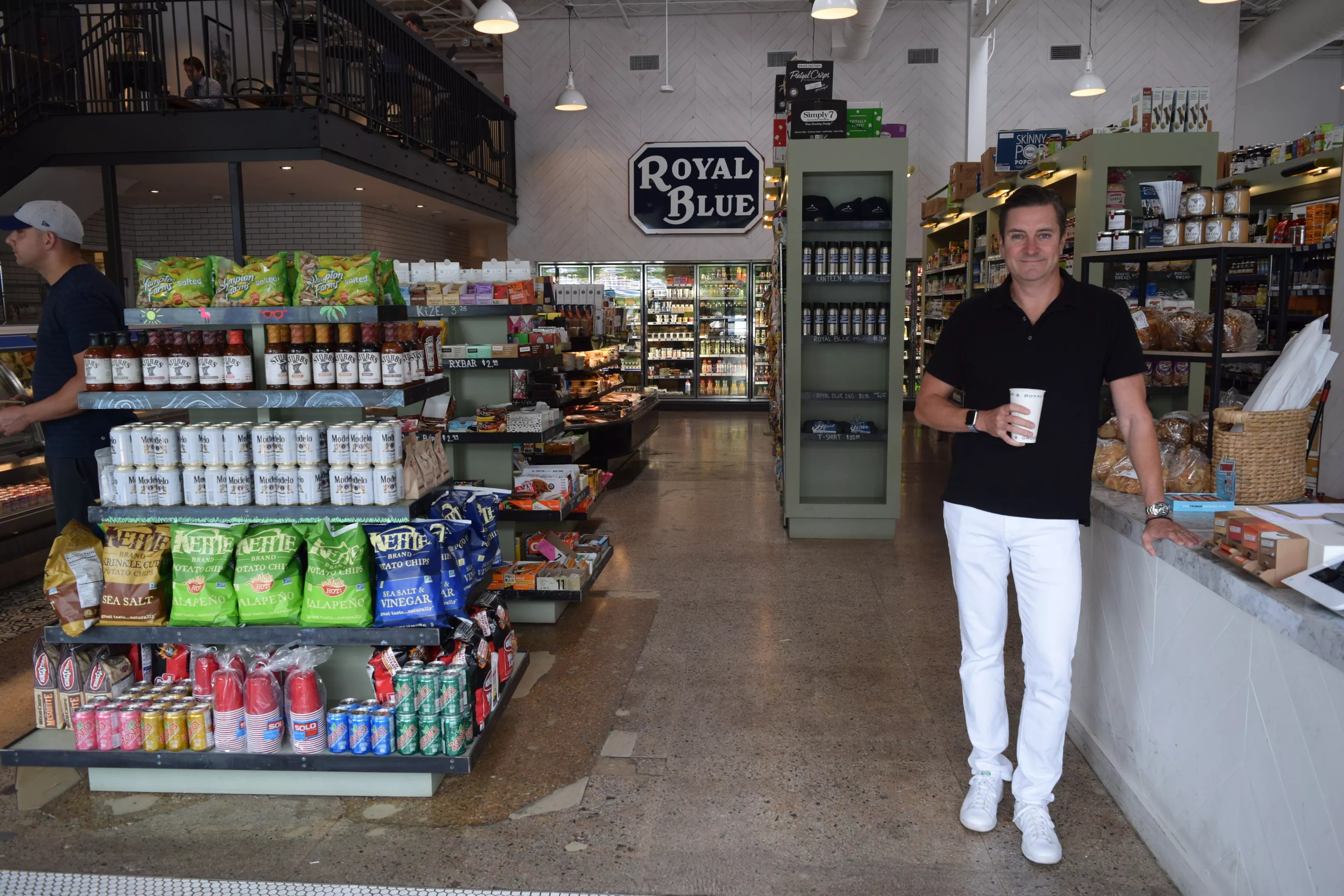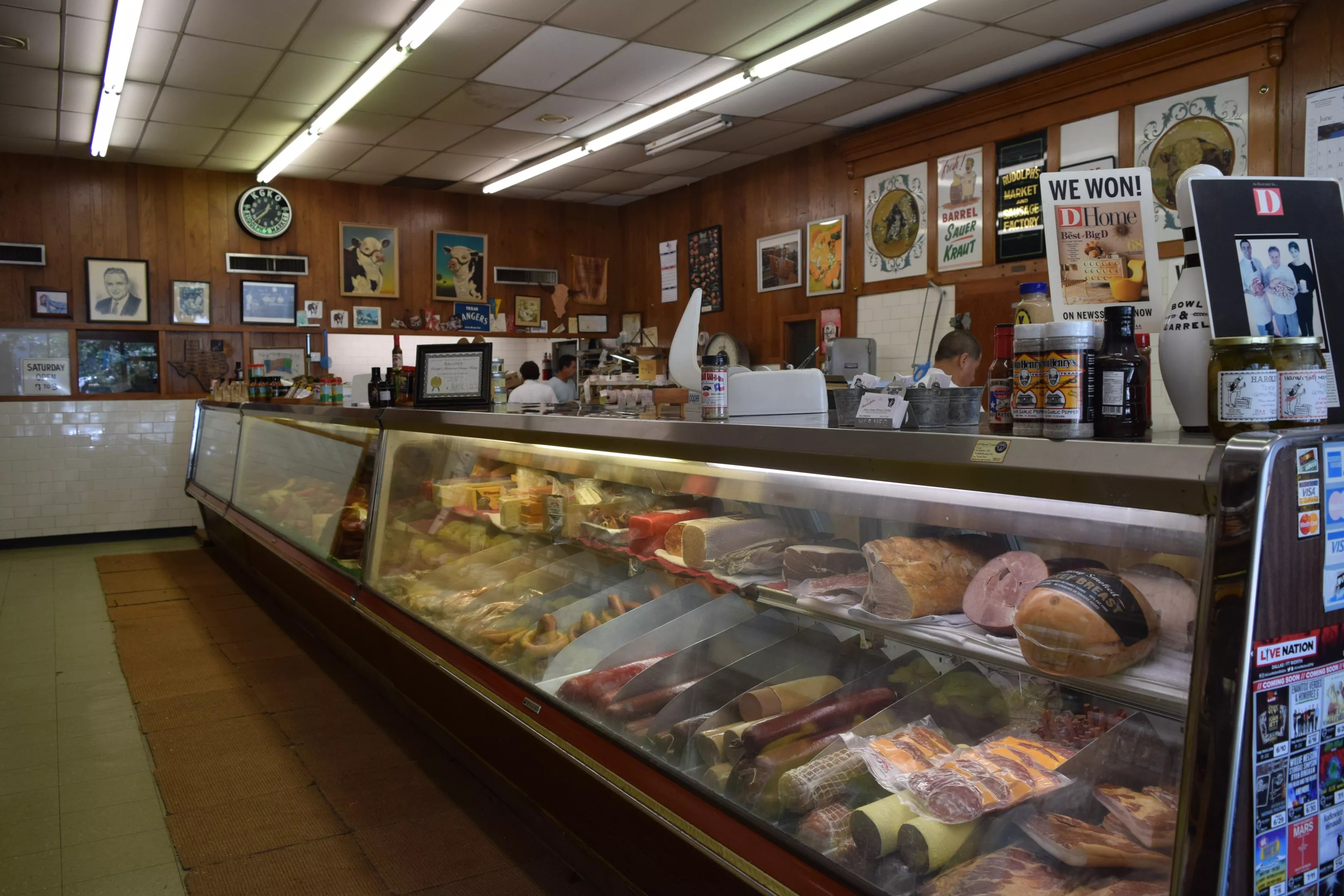
Chandler Gibson

Audio By Carbonatix
The grocery landscape in Dallas is changing. As big-box stores expand, major grocery brands increasingly offer services like delivery and curbside pick-up, eliminating the need for some to visit grocery stores altogether. Cities north of Dallas are expanding, bringing in the major national brands needed to sustain a growing population, but one sector of the grocery market continues to stake its claim: small, independently owned specialty grocery stores. These stores can cater to a more unique market, and they can also unintentionally isolate themselves into a dangerously small niche.
“I think it’s really that we’re hyper-focused on what our customer wants, and we try to tailor the store to their needs,” says Zac Porter, Dallas expansion partner of Royal Blue Grocery, a gourmet grocer in Highland Park Village. “We keep a request book at every register. … We’re working with over a hundred vendors and distributors now, so we can carry a broad range of things from conventional to gourmet to organics.”
To find its niche in the growing area, Austin-based Royal Blue Grocery had to adjust its strategy in Highland Park Village. It was the brand’s first expansion into a mainly residential market. The store is opening a second, smaller location in the Mercantile Building at Main and Ervay streets downtown later this summer. Not only have the stores had to diversify the products they stock (like Tide and Dom Perignon, Porter jokes), they have to stay relevant to get return business.

Chandler Gibson
“I think it’s just customer service for me,” Tony DiCarlo of Jimmy’s Food Store said. “My dad has pounded in my head since I was 10 years old starting here: Don’t let them leave angry. A big company, if they mess up, they’ll give you a refund, knock it off, that’s it. For us, it hits us even more – emotionally, too.”
Independent grocery stores, specialty stores and gourmet shops like Jimmy’s, which is more than 50 years old, live and die by their customers’ first impressions. To make that first impression count, they have to do something different, something that makes potential customers want to leave a major retailer and venture off the beaten path.
“We specialize in over 20 different types of European-style sausages, smoked sausages, and we cater to a lot of the barbecue restaurants around the Metroplex,” said Neil Andreason, co-owner of Rudolph’s Meat Market and Sausage Factory. “We have pretty much anything and everything that you can’t find in a grocery store: the old-fashioned cuts of bologna and head cheese and kielbasa. … If you’re looking at trying Rocky Mountain oysters, then we’ve got that.”

Rudolph’s Meat Market, a longtime mainstay in Deep Ellum, has survived more than 100 years by offering selection you can’t find in typical grocery stores.
Chandler Gibson
Although chains like Walmart and Whole Foods can feel impersonal and disconnected from their roots and even their suppliers, family-owned and -operated stores strive to not be so distant. Desiree and Calvin Wineland, owners of American Butchers and Beyond the Butcher, both at the Dallas Farmers Market, understand this probably best of all.
“The owners get their meat from 144 different small ranching families in a few states … Texas, Nebraska, Oklahoma and two more,” marketing intern Jenna Gooch said.
The Winelands say they only make a profit from drinks. Everything else, according to Gooch, goes back to the farmers who provide the meat.
To break into the Dallas specialty food store scene, owners have to possess the personality of Jimmy’s, the versatility of Royal Blue Grocery, the Winelands’ commitment to their roots and the strength of family like the Andreason brothers at Rudolph’s. To survive, though, they need a firm network of friends and family, not unlike their target market.
Royal Blue Grocery, 1 Highland Park Village
Jimmy’s Food Store, 4901 Bryan St.
Rudolph’s Meat Market and Sausage Factory, 2924 Elm St.
Beyond the Butcher, 920 S. Harwood St.